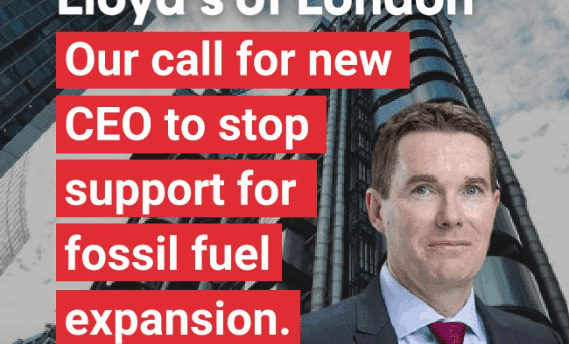Climate finance experts have revealed the major loopholes in hundreds of financial institutions’ coal policies which they say could lead to the expansion of the coal industry and prevent the world from exiting coal on time if left unchecked. They also expose the banks, insurers, asset owners and asset managers with no restrictions on coal at all.
Reclaim Finance, in partnership with 16 other NGOs, is releasing the first online tool to identify, assess, and compare the policies adopted by financial institutions worldwide to restrict or end their financial services to the coal sector. The Coal Policy Tool rates the coal sector policies of 214 financial institutions on a consistent and transparent scoring grid built upon five key criteria; it also names the largest banks, re/insurers, asset owners and asset managers that have not begun taking steps on the coal policy road.
The tool, which will be updated in real-time, spans 30 countries, from Australia to the United States. The Coal Policy Tool helps users to easily identify the good, the bad, and the in-between of policies adopted by financial institutions worldwide. It is accessible at coalpolicytool.org.
The number of coal policies has been growing fast since the adoption of the Paris Agreement in 2015. The Coal Policy Tool is the most comprehensive database assessing the quality of existing policies against the goal of keeping global warming below 1.5 degrees Celsius above pre-industrial levels. In a snapshot, the tool shows that:
- The best policies are in Europe, where one can find the highest number of financial institutions adopting policies on coal and reviewing them regularly to adopt higher standards.
- US asset managers, which dominate the market worldwide, are among the worst performers. BlackRock is the only US asset manager with a policy on coal. However, Blackrock’s January 2020 announcement was largely theatrical as its policy scored 0 on all but one of the Coal Policy Tool criteria.
- Except for French banks which have recently adopted policies to exit the coal sector, banks are globally lagging behind re/insurers, with a relatively higher number of re/insurers having adopted appreciable restrictive exclusion criteria at the corporate level.
Quality is, however, still a major issue. According to the Coal Policy Tool’s analysis, only 16 financial institutions, including top players such as AXA, Crédit Agricole/Amundi, Crédit Mutuel and UniCredit have a robust coal phase-out policy. Most coal policies around the world remain too weak to even prevent further growth of the coal sector.
“The tool goes beyond identifying and comparing policies and enabling clients, media, financial institutions, and other stakeholders to navigate the coal policy jungle easily. Above all, it aims to ensure high-quality coal policies that effectively contribute to preventing climate chaos.
“It is not enough to just adopt a policy, what we need are good coal policies. French financial institutions were the first global players that adopted policies on coal, but these policies had to be amended many times before they became sufficiently robust to support a coal exit. We cannot afford to continue delaying real action. Addressing oil and gas is increasingly pressing; financial institutions need to now urgently progress to the level of the highest quality coal policies identified by our tool.”
What makes a coal policy strong?
To perfectly align with climate science, a coal policy needs to (a) cover the entire value chain, from mining to power through infrastructure; (b) tackle all financial services, including corporate and project financing, underwriting, and passive fund management, and (c) combine exclusion criteria and shareholder engagement to not only prevent the expansion of the coal sector but to also support its rapid phase-out.
- Preventing new coal projects from being built is of the utmost urgency to have a chance at limiting global warming below the 1.5ºC target set forth in the Paris Climate Agreement: Financial institutions must immediately end all services at the project level, but also all general corporate support to companies with coal expansion plans.
- All existing coal assets must progressively be shut down, and not sold: Financial institutions must commit to bringing their coal exposure to zero by 2030 in Europe and OECD countries and by 2040 in other countries at the latest. Achieving these goals requires the immediate exclusion of companies highly exposed to coal – either because a large share of their activities is based on coal or because the sheer size of their coal activities is significant [5]- as well as a robust engagement strategy requiring companies to adopt a coal phase-out plan.
Most banks and insurers still support new coal projects
216 top financial institutions continue to lack any policy on coal, and most banks and insurers allow direct financing or insurance coverage for new coal projects. This is the case for the UK insurance market Lloyd’s and the Polish insurer PZU, which do not exclude any new coal projects.
"Lloyd’s of London continues to pave the way for climate destruction despite the coal policies of its insurance counterparts. The Coal Policy Tool clearly depicts the top climate villains in the European insurance industry: PZU who insures the heavily polluting coal mines in Poland, and Lloyd’s who provides reinsurance for PZU as well as insurance for the Trans Mountain Tar Sands Pipeline in Canada and proposed Adani Charmichael coal mine in Australia.”
Existing policies are insufficient to mitigate the impacts of the coal sector
51 banks and insurers analysed in the tool still do not exclude any coal companies from financial services and just exclude financial services on the project level. And most exclusions of coal companies are based only on the relative share of coal in their activities. As revealed by the Global Coal Exit List, a database maintained by the NGO Urgewald, this approach leads to policies that let some of the biggest coal producers or coal plant developers off the hook.
"US asset managers tend to share an inadequate, dead-end approach to coal and climate. Whether it’s the Californian pension funds CalPERS and CalSTRS or the biggest global asset manager BlackRock, we face policies that only tackle the mining side of the coal industry and leave out all other coal-related activities. They are rightly in red for all criteria of the Coal Policy Tool, and their policies will remain an obstacle towards coal exit as long as they keep ignoring more than half of the coal sector."
Most financial institutions fail addressing the need to exit coal
And last, but not least, the Coal Policy Tool shows that almost everything remains to be done to support the closure of existing coal assets on time to align with climate science. Only an exceedingly small number of financial institutions have started to (a) commit to reducing their exposure to the coal sector to close to zero at the latest by 2030 in Europe and OECD countries and by 2040 in other countries at the latest and (b) adopt a strategy to meet this target. Many French financial groups are now requiring that their remaining clients adopt a coal phase-out plan by the end of 2021 and have pledged to drop clients who are unable to prove their ability to exit coal in a timely and orderly manner.



